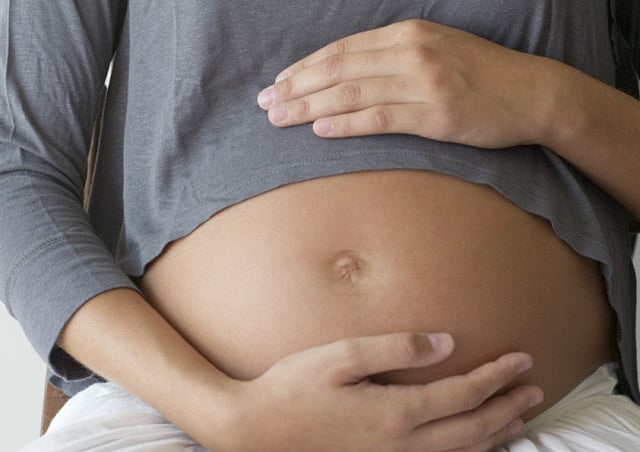COVID-19 during pregnancy “essentially asymptomatic”
Doctors allay fears regarding the effect coronavirus has on pregnant women

An expert from the All India Institute of Medical Sciences (AIIMS) has claimed that coronavirus infection during pregnancy is essentially asymptomatic and does not worsen much, while warning that there could be a small risk of giving preterm birth.
According to K. Aparna Sharma, Additional Professor at the Department of Obstetrics and Gynaecology in AIIMS, there has not been much evidence to suggest that pregnant women are more susceptible to coronavirus, unless there are comorbidities.
"We have seen that the coronavirus infection in pregnancy is essentially asymptomatic and does not really worsen a lot. There are no reports of an increase in the risk of miscarriage or early pregnancy loss. But there might be a small risk of preterm birth, i.e., birth before time," Sharma said.
She clarified that there is no increase in the risk of intrauterine fetal infection, congenital malformations, effect on fetal growth, vertical transmission or transmission through genital fluids to babies from a coronavirus positive mother.
Sharma insisted that vaginal deliveries can be carried out as vaginal secretion does not infect the baby. She further said that there is not enough evidence to conclude vertical transmission of virus through breastfeeding or even placenta to infants.
Breastfeeding with COVID-19
"While breastfeeding, the mother should wear a mask, not sneeze or cough onto the baby, regularly disinfect the surfaces, and wash hands before and after touching the baby," Sharma said in a webinar organised by AIIMS.
Substantiating Sharma's point, Anu Sachdeva, Assistant Professor at the Department of Pediatrics in AIIMS, said that there is no doubt that the advantages of breastfeeding surpasses the risk of possible vertical transmission.
"If a baby is born from a mother who is Covid positive, there are two major concerns. First, if the neonate is stable, then it remains with the mother and how she practises rooming-in, observes hand hygiene and wears masks and continues breastfeeding. Second, if the baby is unstable, he/she has to go to a defined isolation facility."
She added, "If the condition of an unstable baby is ready to accept feeds, then the mother should send breast milk to the baby."
Ways to treat COVID-19 during pregnancy
Alluding to the drugs which can be administered to coronavirus positive pregnant women, Neeraj Nischal, Assistant Professor at the Department of Medicine in AIIMS, said that except plasma therapy and Remdesivir, other therapies should be preferably avoided.
"Plasma therapy can be used, but we have to remember that the role of this therapy is still controversial and the data is still emerging. So we have to assess the risks and benefits before considering it for any pregnant patient," Nischal said.
He further added that Remdesivir has been found to be safe for pregnant patients. Besides this, he said that pregnant patients should avoid getting immuno-modulators unless it is a matter of life and death, while also pressing for the judicial use of steroids.
Sign up for the Daily Briefing
Get the latest news and updates straight to your inbox
Network Links
GN StoreDownload our app
© Al Nisr Publishing LLC 2026. All rights reserved.